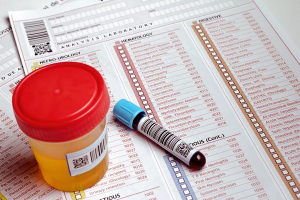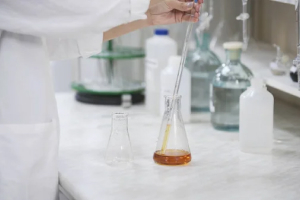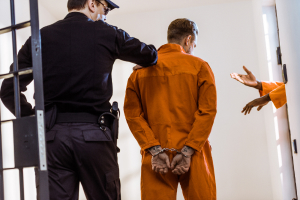


Driving under the influence (DUI) is a serious offense in San Jose, California. It's crucial to understand the different tests law enforcement officers employ to identify and prosecute DUI offenses. It is time to explore the legal framework for DUI testing, the types of tests (such as a breath test, urine test, or chemical test), their accuracy, and potential legal defenses.
Keep in mind that this is not necessarily something that you need to go through on your own. At Summit Defense, our San Jose DUI attorneys can provide you with the legal representation you deserve. If you are being investigated for driving under the influence or have already been arrested, remember to reach out to us as soon as possible for a case consultation.
Let our San Jose criminal defense lawyer provide you with the strong defense that you expect and deserve.
In California, including San Jose, the legal limit for blood alcohol content (BAC) is 0.08% for drivers over 21, 0.01% for drivers under 21, and 0.04% for commercial drivers. The state implements an implied consent law, which means that you consent to chemical testing by driving a vehicle to determine your BAC. Refusal to submit to such tests (including a preliminary alcohol screening test) can lead to severe penalties, including license suspension and fines.

Field Sobriety Tests are physical tasks used by officers to assess a driver's impairment. They are typically administered roadside and include three standardized tests recognized by the National Highway Traffic Safety Administration (NHTSA). These tests are only reliable when administered appropriately, and we can review your case to see if any discrepancies could impact the validity of the results.
The HGN test assesses the involuntary jerking of the eye as it gazes side to side. Under the influence, nystagmus is exaggerated and occurs at lesser angles. Officers will look for three indicators of impairment in each eye:
The premise of this test is that people who are under the influence of alcohol might have a difficult time controlling their eyes. So failure to adequately perform this test could be a sign that someone is under the influence of drugs or alcohol.
During the WAT test, the driver is instructed to take a few steps, heel-to-toe, along a straight line, rotate on one foot and return in the same manner. Officers look for eight indicators of impairment, including the inability to balance during instructions, stopping while walking, incorrect number of steps, and more.
In the OLS test, the driver must stand with one foot about six inches above the ground and count for 30 seconds. Officers look for four indicators of impairment, such as swaying while balancing, hopping to maintain balance, or putting the foot down.
Several factors can affect FST results, including the individual's physical condition, the environment, and the officer's interpretation of the test. For example, individuals with physical disabilities or injuries, older people, and those with balance or inner ear disorders may have difficulty performing FSTs. Environmental factors like uneven surfaces, poor lighting, and adverse weather conditions can also impact performance. Lastly, FSTs are subjective, and different officers may interpret results differently.

Chemical tests are used to measure the concentration of alcohol in a person's system. These tests typically involve the collection and analysis of breath or blood samples. These devices must be appropriately calibrated for the results to be considered reliable.
Breathalyzer tests are standard during DUI stops because they're quick, non-invasive, and provide immediate results. Breathalyzers analyze a breath sample to determine the amount of alcohol in your bloodstream. It's based on the concept that there's a direct ratio between the alcohol concentration in one's breath and blood.
In San Jose, the legal requirements and procedures for breathalyzer testing include the following:
Blood tests are considered more accurate than breath tests. They involve drawing and analyzing a blood sample in a lab to determine the exact blood alcohol content. Properly handling and storing blood samples are essential to prevent contamination or degradation, which could impact the results.

While FSTs and chemical tests are commonly used to determine impairment, their accuracy and reliability can be questioned. FSTs are inherently subjective and rely on the officer's interpretation of the suspect's performance. Furthermore, certain medical conditions or physical disabilities can affect a person's ability to perform these tasks.
Chemical tests, while more objective, also have their limitations. Breathalyzer tests can be affected by factors like device calibration, the person's breathing pattern, or the presence of mouth alcohol. Blood tests, although more accurate, require proper collection, storage, and analysis procedures to ensure reliable results.
Failing a DUI test in San Jose can lead to serious legal consequences. This includes the suspension of driving privileges, hefty fines, mandatory DUI school, probation, and even jail time. The severity of the penalties depends on the circumstances of the offense and whether it's a first-time or repeat offense.
If you have a clean criminal record, you might not be subject to the same penalties as someone with a lengthy criminal record or a prior history of DUI convictions. No matter your situation, the legal consequences of failing a DUI test in San Jose can be severe, so be sure to contact us to schedule a case consultation as quickly as possible.

In San Jose, a first-time DUI offense can result in penalties, including up to six months in jail, fines up to $1,000, and a six-month license suspension. Penalties increase with subsequent offenses, and aggravating factors like causing injury or death can lead to felony charges. Remember that you may also be required to attend traffic school, perform community service, and remain on probation even if you avoid jail time.
While DUI charges are serious, it's crucial to remember that they can be defended against. A skilled DUI attorney can challenge many aspects of the charges, from the traffic stop to the administration and accuracy of sobriety tests. Some possible defenses that might be used in a San Jose DUI case include the following:
Remember, every case is unique, and the success of these defenses will depend on the specific circumstances of your case. An experienced DUI attorney can evaluate your situation and determine the best defense strategy.

Facing a DUI charge can be overwhelming, but you don't have to navigate it alone. At Summit Defense, our experienced DUI defense attorneys are dedicated to protecting your rights and delivering the best possible outcome. Whether it's questioning the validity of field sobriety tests, challenging the accuracy of breath or blood tests, or scrutinizing the procedures followed during your arrest, we'll meticulously examine every detail of your case.
Don't let a DUI charge disrupt your life. Contact Summit Defense today for a free consultation with our DUI defense attorney in San Jose.

580 California Street, 12th Floor
San Francisco, CA 94104
1970 Broadway, Suite 1145
Oakland, CA 94612
2570 N 1st Street, 2nd Floor
San Jose, CA 95131
533 Airport Blvd, Suite 400
Burlingame, CA 94010
6200 Stoneridge Mall Road, Suite
300 Pleasanton, CA 94588
370 Convention Way Suite 316
Redwood City, CA 94063
500 Capitol
Mall Sacramento, CA 95814